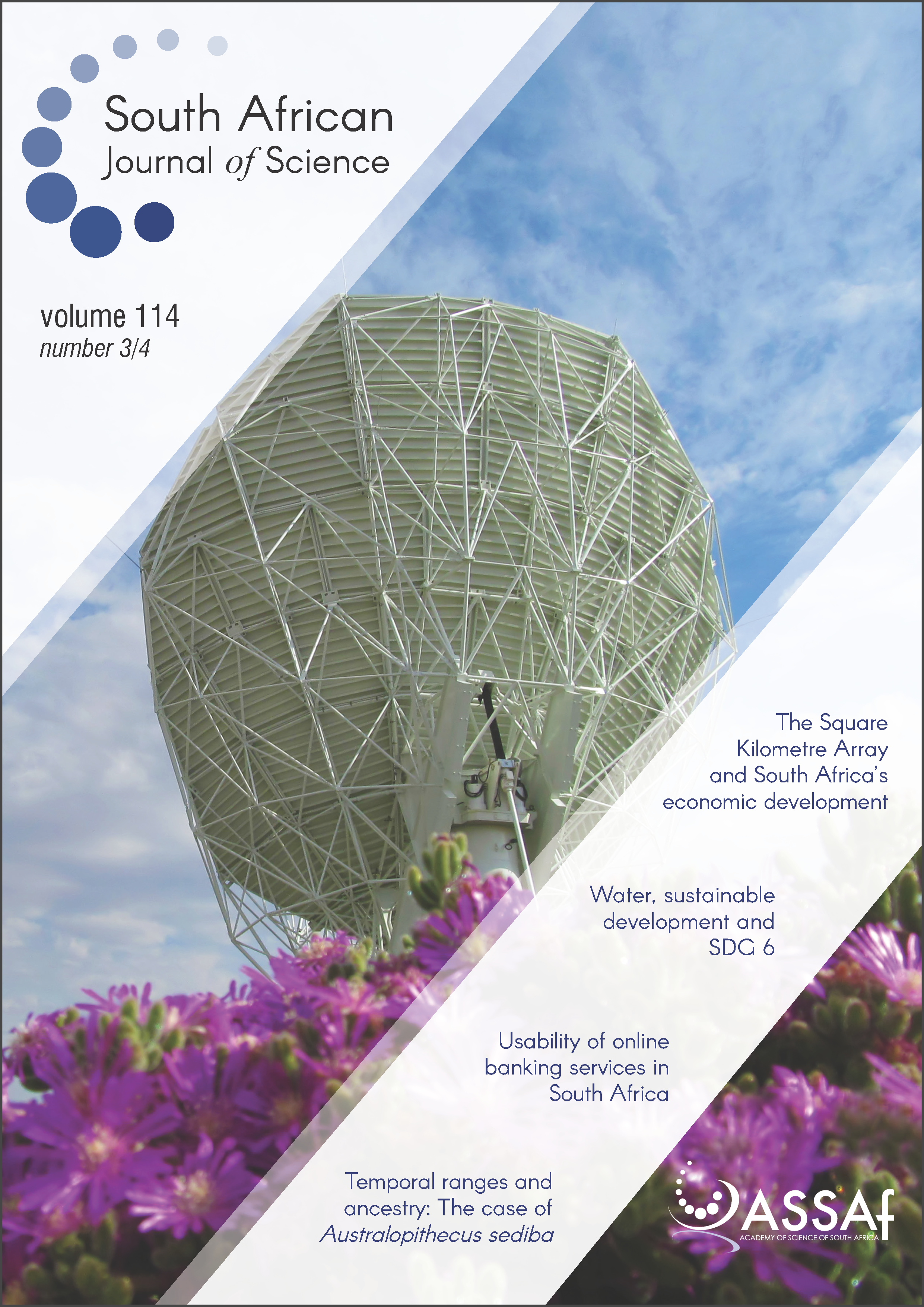The role of the Square Kilometre Array in South Africa’s economic development strategy
DOI:
https://doi.org/10.17159/sajs.2018/20170297Keywords:
knowledge-based economy, 4I model, institutions, innovation, astronomyAbstract
This study was undertaken to understand factors inhibiting and enabling the impact of the Square Kilometre Array South Africa (SKA SA) on the South African knowledge economy. A critical review of relevant literature revealed four themes, which are considered to be the main pillars crucial for engendering a knowledge economy: institutions, interrelationships, innovation and individuals. These pillars form the basis for the 4I model developed in this paper, the relevance of which in stimulating a knowledge economy was investigated. This study revealed no additional pillars, thus validating the 4I model in relation to SKA SA’s contribution to the knowledge economy. SKA SA’s success is underpinned by open and inclusive institutions, fostering and leveraging interrelationships, promoting innovation that may be commercialised, and attracting, retaining and training suitable individuals. Furthermore, this study provides a deeper insight into the 4I model by revealing new sub-themes that apply in a broader context, including the role of a nation’s inherent competitive advantage in informing its competitive and innovation strategy, the nature of interrelationships that may be multidimensional, and politically astute leadership that is crucial for the ongoing support of a publicly funded project. This deeper understanding of the 4I model forms a basis for strengthening each pillar and its impact on the knowledge economy.
Significance:
- The 4I model, which is necessary for engendering a knowledge-based economy, is introduced.
- The role of a nation’s inherent competitive advantage may inform its competitive and innovation strategy.
- A nation’s institutions must be both inclusive and open for a knowledge-based economy to thrive.
- Interrelationships may be multidimensional in nature, including multidisciplinary, international and cross-sector collaboration.
- Politically astute leadership is crucial for the ongoing support of publicly funded projects.
Downloads
Published
Issue
Section
License

All articles are published under a Creative Commons Attribution 4.0 International Licence
Copyright is retained by the authors. Readers are welcome to reproduce, share and adapt the content without permission provided the source is attributed.
Disclaimer: The publisher and editors accept no responsibility for statements made by the authors
How to Cite
- Abstract 1752
- PDF 850
- EPUB 210
- XML 273
- Supplementary Material 502












.png)